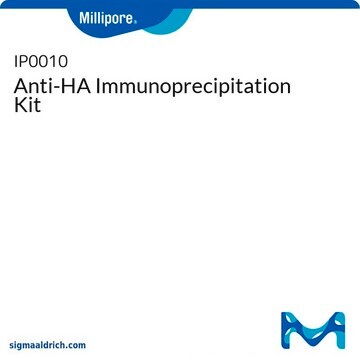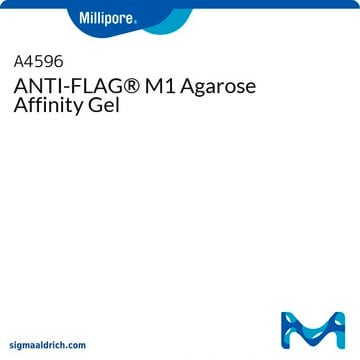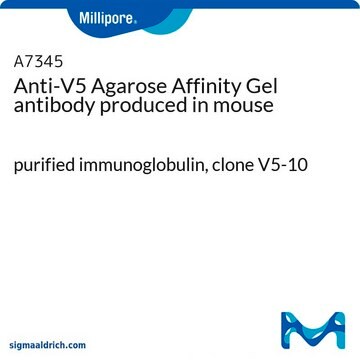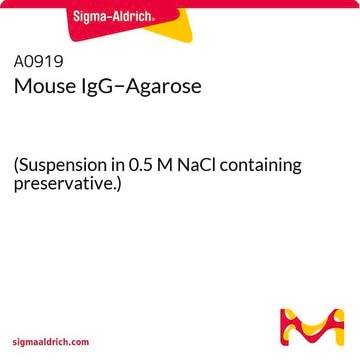Fontos dokumentumok
A2095
Monoclonal Anti-HA−Agarose antibody produced in mouse
clone HA-7, purified immunoglobulin, PBS suspension
Szinonimák:
Monoclonal Anti-HA, Anti-HA, Anti-Influenza Hemagglutinin
About This Item
Javasolt termékek
biológiai forrás
mouse
Minőségi szint
konjugátum
agarose conjugate
antitest forma
purified immunoglobulin
antitest terméktípus
primary antibodies
klón
HA-7, monoclonal
Forma
PBS suspension
izotípus
IgG1
kapacitás
20-50 nmol/mL elution capacity (HA-tagged fusion protein)
30-50 nmol/mL binding capacity (HA-tagged fusion protein)
kiszállítva
wet ice
tárolási hőmérséklet
2-8°C
Looking for similar products? Látogasson el ide Útmutató a termékösszehasonlításhoz
Általános leírás
Egyediség
Immunogén
Alkalmazás
Fizikai forma
Elkészítési megjegyzés
Nem találja a megfelelő terméket?
Próbálja ki a Termékválasztó eszköz. eszközt
kapcsolódó termék
Tárolási osztály kódja
10 - Combustible liquids
WGK
WGK 3
Lobbanási pont (F)
Not applicable
Lobbanási pont (C)
Not applicable
Egyéni védőeszköz
Eyeshields, Gloves, multi-purpose combination respirator cartridge (US)
Válasszon a legfrissebb verziók közül:
Analitikai tanúsítványok (COA)
Nem találja a megfelelő verziót?
Ha egy adott verzióra van szüksége, a tétel- vagy cikkszám alapján rákereshet egy adott tanúsítványra.
Már rendelkezik ezzel a termékkel?
Az Ön által nemrégiben megvásárolt termékekre vonatkozó dokumentumokat a Dokumentumtárban találja.
Az ügyfelek ezeket is megtekintették
Tudóscsoportunk valamennyi kutatási területen rendelkezik tapasztalattal, beleértve az élettudományt, az anyagtudományt, a kémiai szintézist, a kromatográfiát, az analitikát és még sok más területet.
Lépjen kapcsolatba a szaktanácsadással















